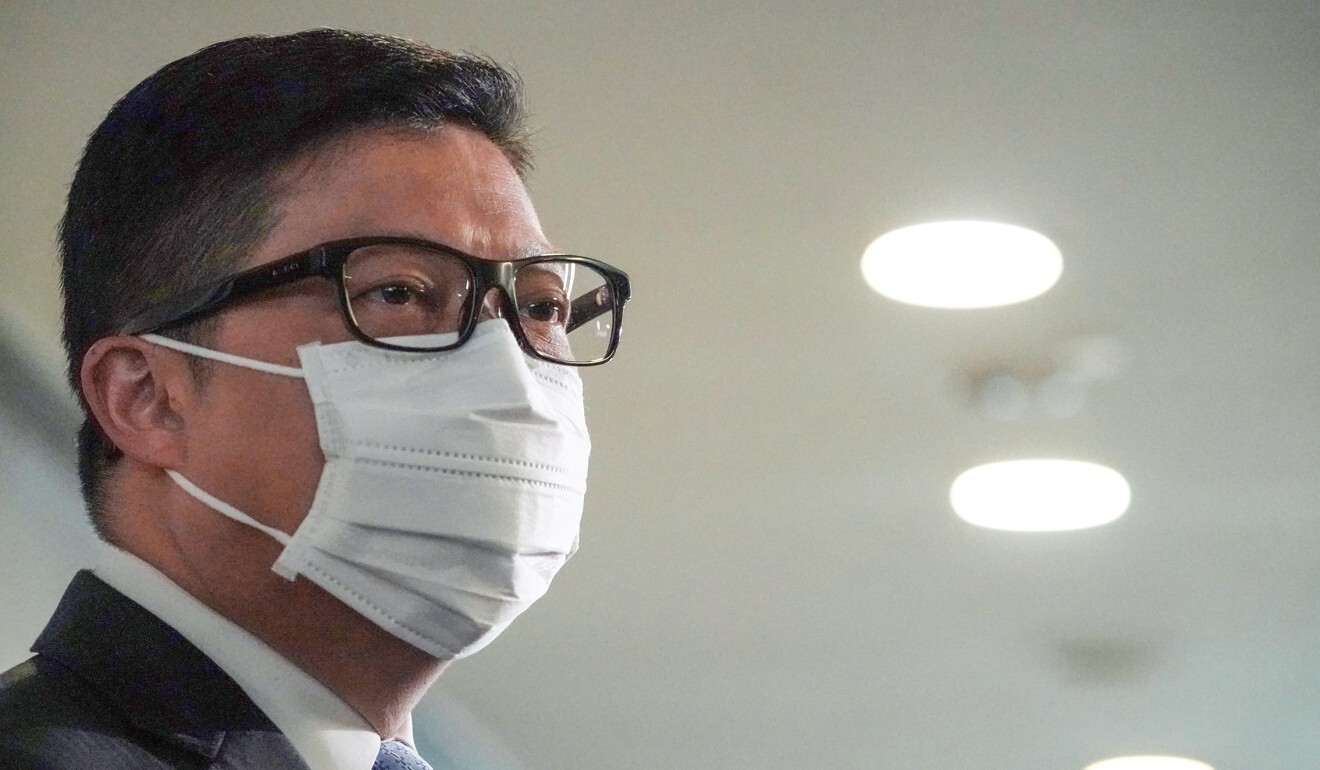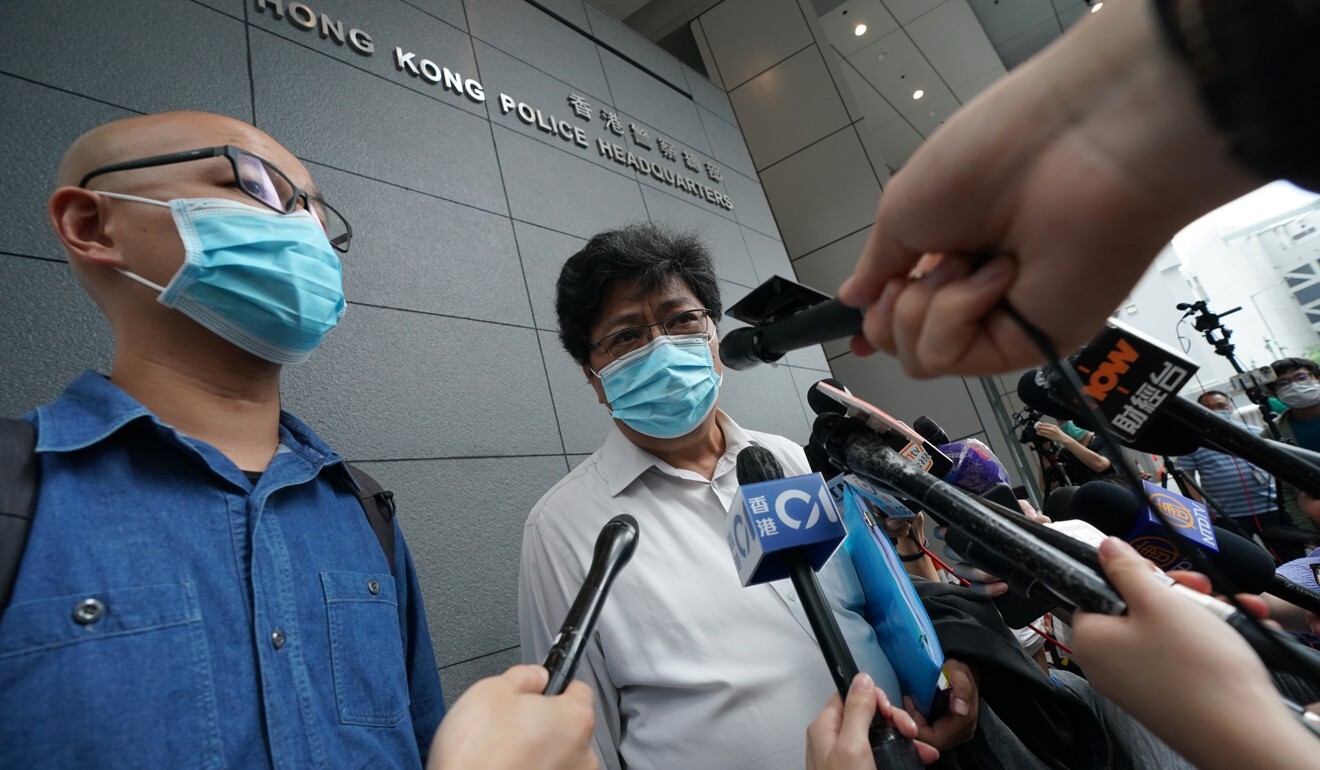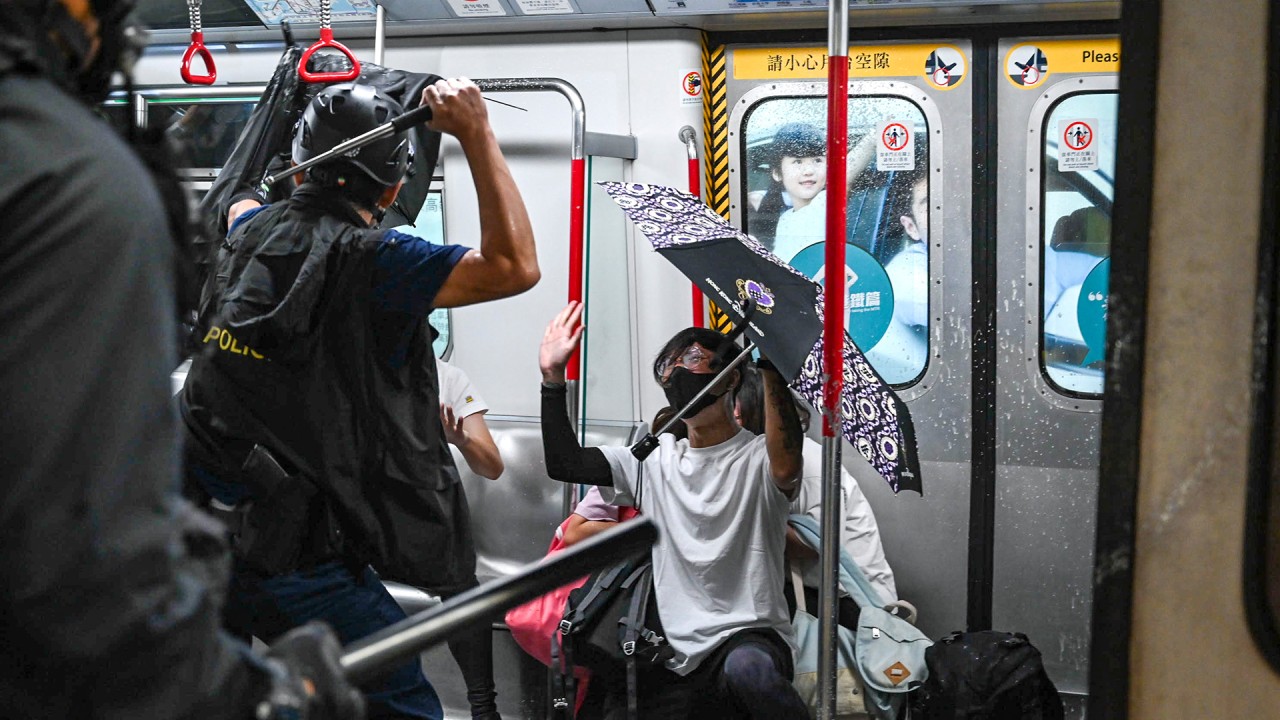
Hong Kong police chief apologises to reporters mistreated by officers at Mong Kok protest
- Reporters were pepper-sprayed, temporarily detained and told to turn off their cameras while covering demonstration
- But Chris Tang refuses to rule out use of force at future demonstrations, during a meeting with media groups
Hong Kong’s police chief personally offered an apology to journalists mistreated by officers at a protest earlier this month but made no promise of refraining from using force against reporters in the future, according to media representatives who attended a meeting with him on Thursday.
Police Commissioner Chris Tang Ping-keung met four media groups – the Hong Kong Journalists Association (HKJA), the Hong Kong News Executives’ Association (HKNEA), the Hong Kong Federation of Journalists and the Hong Kong Press Photographers Association (HKPPA) – to discuss concerns about officers’ treatment of journalists.
Speaking after the nearly two-hour session, HKJA chairman Chris Yeung said Tang issued a personal apology to reporters who were pepper-sprayed, temporarily detained and told to turn off their cameras in Mong Kok on May 10.

Reporters were covering a clearance operation, when police tried to disperse dozens of protesters who had blocked roads and set fire to trash.
“[Tang] said if reporters felt insulted or offended, he will apologise in his personal capacity,” Yeung said. He also found it discouraging the commissioner did not address their other demands, such as suspending and investigating officers involved in mistreating the press at the protest.
We are disappointed that [Tang] did not make concrete promises
“We are disappointed that [Tang] did not make concrete promises, but only repeated that anyone, including reporters, have the right to take pictures and videos in public places … when that does not disrupt operation of police,” he said.
HKPPA chairman Chan Yik-chiu said he was disappointed Tang only issued the apology after repeated calls from journalists.
Police said after the meeting the session was only the start of a longer process and it planned to meet more press groups.

“The commissioner thinks what has happened in Mong Kok on May 10 was not ideal,” police said. “He apologised to news workers who felt offended and promised to seriously handle the incident.”
The meeting came after HKJA and seven other groups representing media workers urged police to “stop hurting reporters” in a joint statement on May 11. Reporters said they were told to crouch or kneel and those who were pepper-sprayed were denied immediate treatment.
Before they were allowed to leave, some reporters had to give their name and Hong Kong identification number and show their press passes to a police camera.
Tang later admitted the police’s handling was “unsatisfactory” and vowed to review practices.
But he also said officers faced increasing obstruction from people wearing press vests who claimed to be reporters.

03:05
HK protests: Watchdog says police use of force met international guidelines but has room to improve
The force had previously said it was difficult for officers to distinguish between genuine reporters and impostors during chaotic scenes. Officers had seized fake press passes, while some people wearing neon press vests and badges ran away when officers approached them.
Yeung quoted Tang as saying there were “merits” in having an identification mechanism for reporters.
“But [Tang] emphasised they are not talking about a press card system and that they do not have any preconceived ideas at this stage,” Yeung said.
HKNEA said it urged Tang to investigate the May 10 events and promise reporters would not be treated that way in the future.
“The association reiterates that it is against any violence, including verbal and physical violence,” the statement read.
It also urged Tang to “seriously handle” police officers who may have violated their code of conduct at the protest.
Help us understand what you are interested in so that we can improve SCMP and provide a better experience for you. We would like to invite you to take this five-minute survey on how you engage with SCMP and the news.

